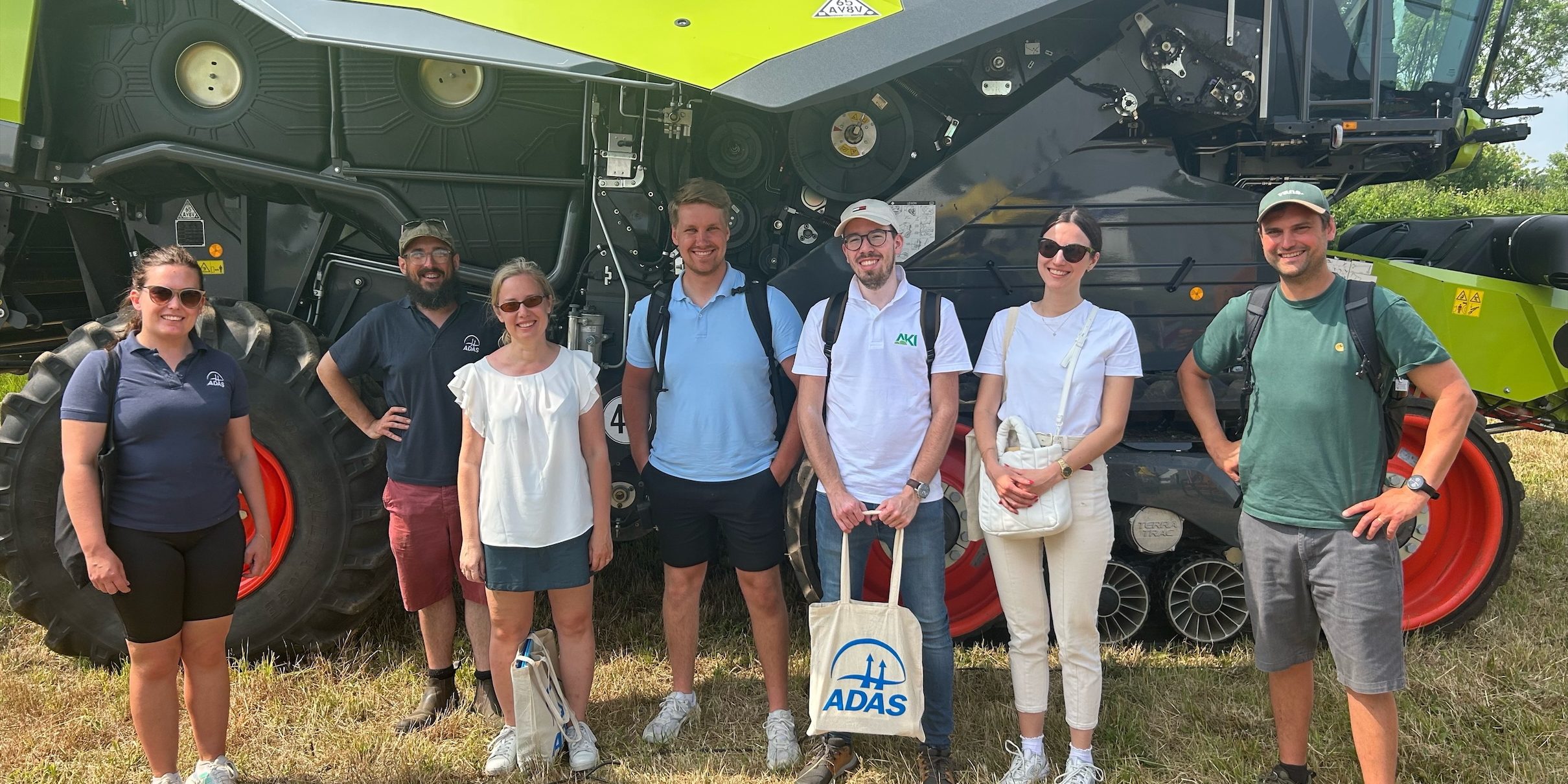As part of the AdvisoryNetPEST Horizon Europe project, which aims to reduce pesticide use, each partner country is required to organize one cross-visit per year. The purpose of these visits is to showcase innovative plant protection approaches identified during the project—both in theory and in practice.
The first such visit for AKI staff within the framework of the project took place in the United Kingdom, on June 19–20, 2025, focusing on arable crop production. During the visit, the host partner, ADAS, together with its collaborators, presented efforts to develop an innovative model for the early detection of Barley Yellow Dwarf Virus (BYDV). The goal is to potentially avoid pesticide application by relying on varietal resistance, decision support tools, and precision monitoring technologies.
Our colleagues also participated in a farm visit, where, in addition to research related to BYDV, they were introduced to further trials—such as how soil management practices influence disease resistance in winter wheat.
The visit provided a valuable opportunity for participants to compare similar challenges faced in their respective countries and discuss various approaches to addressing them. These professional exchanges contributed to knowledge sharing and the development of meaningful professional connections.
AKI was represented by two colleagues from the Agricultural Economics and Information Systems Directorate: Zsófia Balogh and Gábor István.
The Hungarian cross-visit will take place on July 3–4, 2025, during which invited experts will have the opportunity to learn about innovative integrated plant protection solutions used in orchards.



 HU
HU




